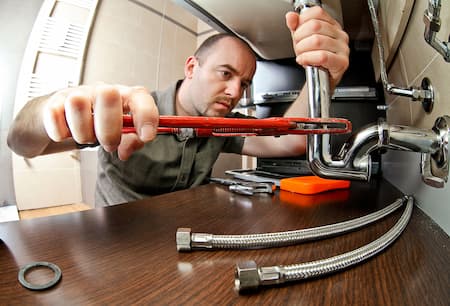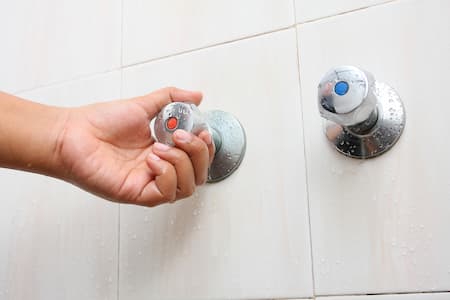
Shower Solutions: A Guide to Unclogging Your Shower Drain
Introduction
If you've ever stepped into the shower only to find yourself standing in a puddle of water, you're not alone. A clogged shower drain is a common household issue that can lead to frustration and inconvenience. Whether it's due to hair buildup, soap scum, or other debris, understanding how to tackle this problem effectively is crucial. In this comprehensive guide, "Shower Solutions: A Guide to Unclogging Your Shower Drain," we will explore various best cheap plumbing services in Stockton methods to unclog your shower drain, how to prevent future clogs, and when it might be time to call in the professionals.
Shower Solutions: A Guide to Unclogging Your Shower Drain
When dealing with a clogged shower drain, the first step is understanding the cause of the blockage. Clogs can stem from multiple sources, including hair accumulation, soap residue, and foreign objects accidentally dropped down the drain. This section will delve into these causes and provide insights on how best to address them.
Understanding Common Causes of Clogged Shower Drains
Hair Buildup: The Number One Culprit
Hair is often the primary reason behind clogged shower drains. When hair mixes with soap scum and other debris, it forms a solid mass that can obstruct water flow. To combat this issue:

- Use a Drain Cover: Installing a drain cover can catch most of the hair before it gets washed down.
- Regular Maintenance: Regularly cleaning your drain cover and removing trapped hair can significantly reduce buildup.
Soap Scum Accumulation
Soap scum, formed by the combination of soap and minerals in water, can accumulate over time and contribute to clogs. To manage soap scum:
- Choose Liquid Soap: Switching from bar soap to liquid soap can help reduce scum.
- Vinegar Rinse: Monthly rinsing with vinegar can dissolve existing soap scum.
Foreign Objects
Sometimes items like shampoo caps or toys accidentally make their way down the drain. If you suspect this is causing your clog:
- Check for Visible Debris: If you see anything sticking out, try retrieving it carefully.
- Use Tools if Necessary: Long tweezers or pliers can help fish out small objects.
Signs That Indicate a Clogged Shower Drain
Identifying the signs of a clogged shower drain early on can help prevent more extensive damage or costly repairs later. Look out for:
DIY Methods for Unclogging Your Shower Drain
Before calling bathroom sink plumbers or searching for "cheap plumber near me," consider trying some DIY methods to unclog your shower drain.
Boiling Water Method
One of the simplest solutions involves boiling water:
Baking Soda and Vinegar Solution
This classic combination works wonders at breaking down clogs:
Plunger Technique
Sometimes all you need is good old-fashioned plunging:
When Should You Call Professional Plumbers?
Despite your best efforts, sometimes it's wise to bring in professionals like emergency plumbers near me or plumbing companies near me if:
- The clog persists after multiple attempts at DIY methods.
- You notice unpleasant odors indicating deeper issues within your plumbing system.
- Water levels are rising dangerously high during usage.
Choosing the Right Plumbing Service Providers
Knowing how to find reliable plumbing services is key when facing significant plumbing issues:
What to Look For in Plumbing Companies Near Me?
Questions to Ask Potential Plumbers
Preventive Measures Against Future Clogs
Once you've tackled an existing clog successfully, focus on prevention strategies so you don't face similar issues again.
Routine Maintenance Tips
Investing in Professional Cleaning Services
Consider scheduling periodic professional cleanings from plumbers near me who specialize in maintenance work.
FAQs About Clogged Shower Drains
Q1: How often should I clean my shower drain?
A: It's advisable to clean your shower drain at least once a month using vinegar or baking soda solutions.
Q2: Can I use chemical cleaners?
A: While effective, chemical cleaners can damage pipes over time; opt for natural remedies first.
Q3: What if my shower still smells bad after cleaning?

Q4: Are there specific tools I need?
A: A plunger, snake tool, and long tweezers are helpful tools for DIY unclogging efforts.
Q5: How do I know when it's time for professional help?
A: If DIY methods fail after several attempts or if there's standing water without draining over extended periods—it's likely time for expert intervention.
Q6: What should I do if my entire house has slow drainage?
A: This may indicate larger systemic issues within your plumbing; contact emergency plumbers near me right away!
Conclusion
In conclusion, understanding how to address clogs effectively brings peace of mind when dealing with one of life's little frustrations—clogged showers! From recognizing common causes like hair buildup or soap scum accumulation through DIY methods such as boiling water treatments or baking soda mixtures—there's always hope! However—don’t hesitate; when all else fails—reach out promptly! With proper care combined with knowledge from "Shower Solutions: A Guide to Unclogging Your Shower Drain," keeping those drains clear becomes an achievable goal!